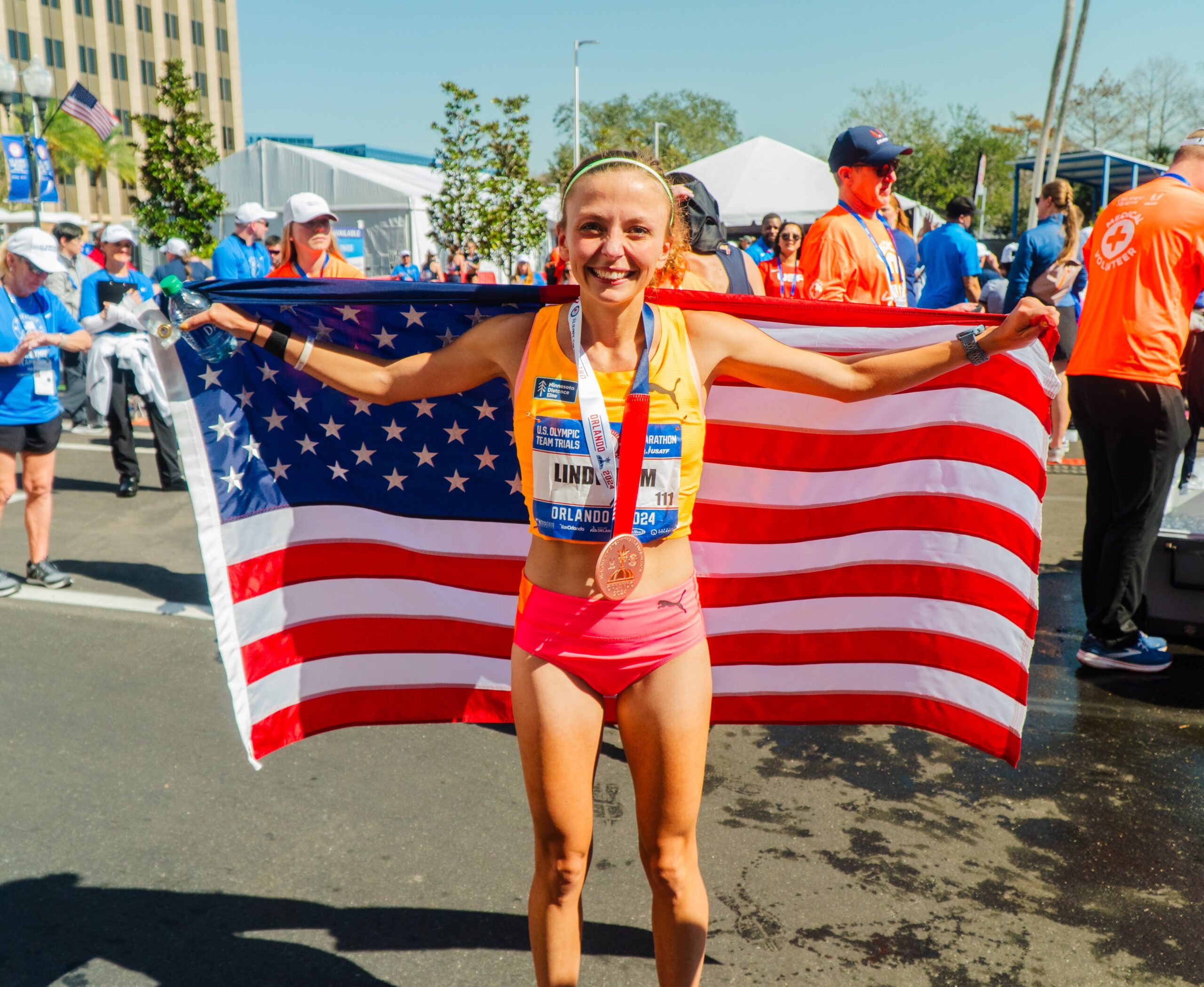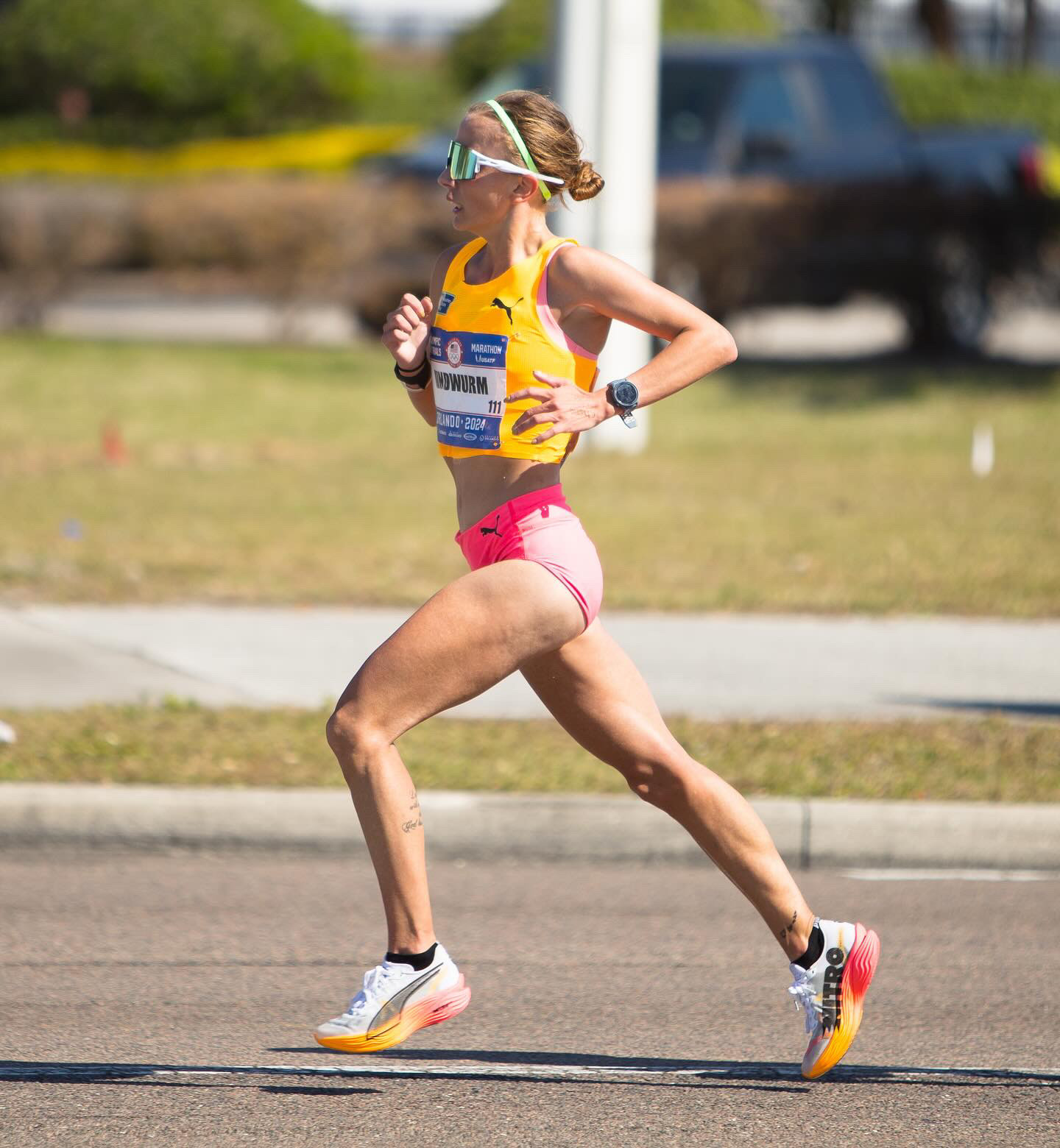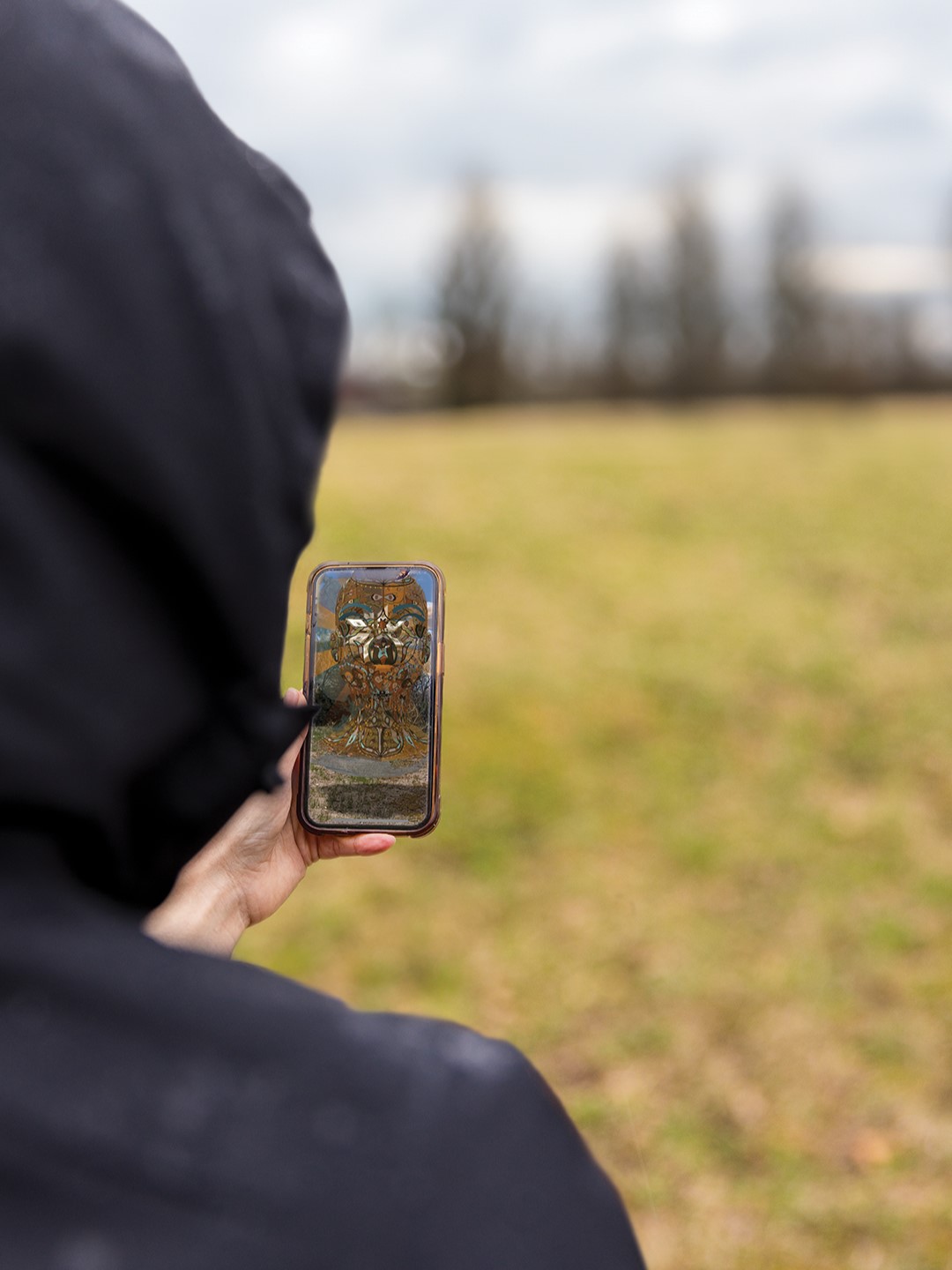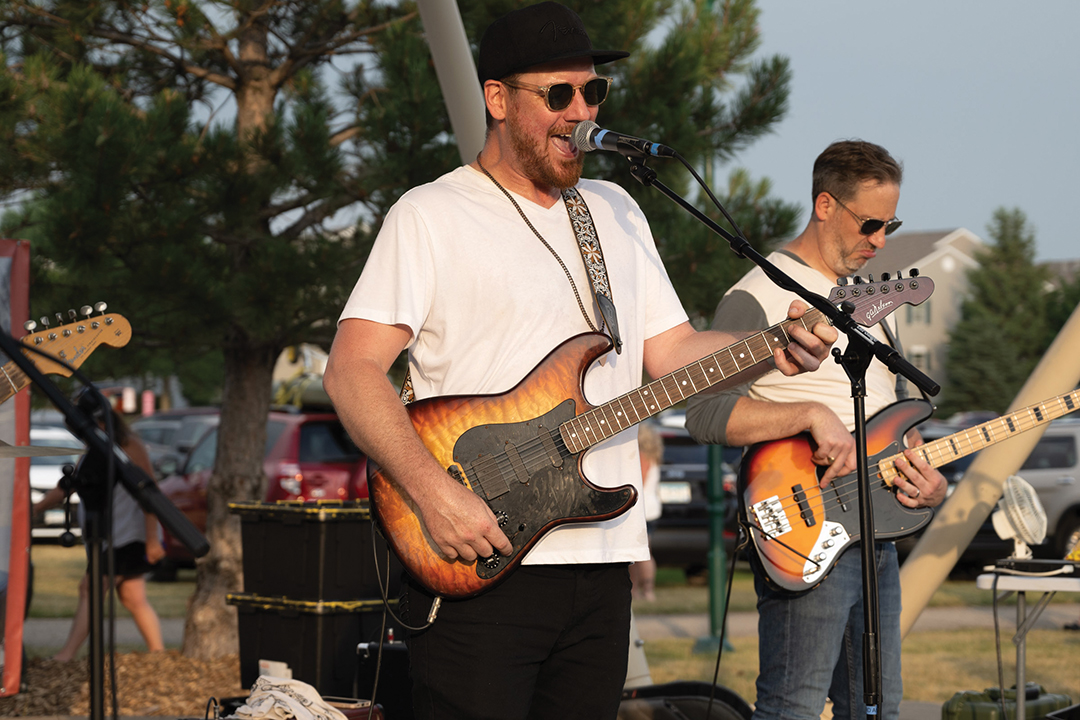
Dakotah Lindwurm wears her third place medal at the Orlando, Florida U.S. Olympic Marathon Trials. Photos: Minnesota Distance Elite
Former Eagan resident will represent the U.S. this August.
“If you watched me literally crossing the finish line, I put my hands on my head and I said, ‘What?’” Dakotah Lindwurm says, remembering her U.S. Olympic Marathon Trials in Orlando, Florida. She came in third, crossing the line at 2:25:31 and qualifying to represent Team USA in the Paris Summer Olympics. “It was life-changing. I had been dreaming of this for so long that it just felt really like a big sigh of relief, too, in a funny way. All the hard work that I’d been putting in had finally paid off.”
Lindwurm acknowledges she wasn’t necessarily a shoe-in for professional running. Her participation on the cross country and track teams in high school, “was not very serious,” she says. “Obviously, our coaches wanted us to be successful, but looking back at it, I think they really wanted to make sure we enjoyed it first and foremost, before we got too serious about it.”
This approach put Lindwurm on the right track.
Lindwurm went on to attend Northern State University in Aberdeen, South Dakota where she continued to compete in long-distance running on the collegiate cross country and track teams. It was her coach, Kevin Bjerke, who first posited she could qualify for the Olympic trials in marathon running if she put her mind to it.
“It stopped me dead in my tracks,” Lindwurm says. “I was like, ‘What does that even mean? How do I do it? What’s the pace?’ I literally went into his office the next day with a notepad and a piece of paper and basically was like, ‘Tell me everything I need to know. How do I take that next step?’”
It was right around the time Lindwurm was graduating college and planning to return to Minnesota. Bjerke put her in contact with the Minnesota Distance Elite team. “Initially they were a little bit hesitant,” she says. “Just like I mentioned, I wasn’t necessarily a shoe-in for professional running with my college accolades. He helped convince them that I was worth taking on.”
So, how did this underdog story lead to the Olympics?
“I say this with the utmost respect and kindness for myself, but I think I just was stupid enough to continue to believe I could,” Lindwurm says. “My college coach saying, ‘Hey, I think this is something you could do,’ just really put a deep belief in my heart. With anything I do, I want to do it to the best of my abilities. Even when he told me, ‘Hey, Dakotah, I think you could qualify for the Olympic trials,’ he wasn’t saying, ‘Hey, I think someday you’re going to be an Olympic athlete.’ He was saying, ‘I think you could get pretty close to that level.’ And for me, it’s like, if I’m going to do something, I just want to be all in.”

Dakotah Lindwurm running at the U.S. Olympic Marathon Trials.
“My advice is just to stay in it. Keep working harder than everybody else, do all the little things that they’re not doing, because— especially for running—you get paid dividends on what you put into it. And if you’re just willing to work harder, recover better and do all the little things to make yourself the best, you will see returns.”—Dakotah Lindwurm
Preparing for Paris
There’s no question about the physicality of marathon racing, but Lindwurm says the mental demands often supersede the physical. “You do the work, and then on race day, you have to figure out how to work through really hard things,” she says. “The more you do it, the more you know what to expect. So I can visualize what that pain is going to be like and how I can work through that as best as possible. When I’m out on my easy runs, I can dream about how I’m going to work through it.”
Lindwurm says that during the race, her goal is to get lost in her head for the first 20 or so miles. “You’re just trying to be anywhere but thinking about what’s happening. And then the last 6 miles or 10K, you’re trying to just use all the mental tricks that you’ve been practicing.”
One of Lindwurm’s mental tricks is the mantra she’s used since she graduated college. “I tell myself, ‘I am strong, I am fast, my speed will last.’”
When it comes to pacing, Lindwurm says it’s a skill honed over time. “In races, especially the marathon, it can be easy to run too fast,” she says. “But just having the experience of knowing exactly what my race pace feels like for my body, I can tune into what it should feel like because I’ve done it so many times.”
But although there’s a mental angle, the physical can’t be overlooked.
“The really great thing is that you don’t have to stay in peak marathon fitness for that long,” Lindwurm says. “Ideally, you actually don’t.”
Since the Olympic trials, Lindwurm has cut back on running to the extent she did prior to the Olympic qualifier. “That fitness doesn’t just go away. It lays dormant,” she says. “And so for right now, we’re just trying to maintain. And then once we get a little bit closer to race day, like two and a half months out, we’ll start ramping back up and unveiling the fitness that I had before and then try to grow upon it.”
(Local) Running Lines
When Lindwurm lived in Eagan, her house was less than half a mile from Lebanon Hills. “I spent a lot of time running those single track trails, which were really challenging,” she says. “But I loved to run around the zoo area.”
Follow along with Lindwurm’s Olympic journey at teamusa.com.
Instagram: @dakotahlindwurm





















